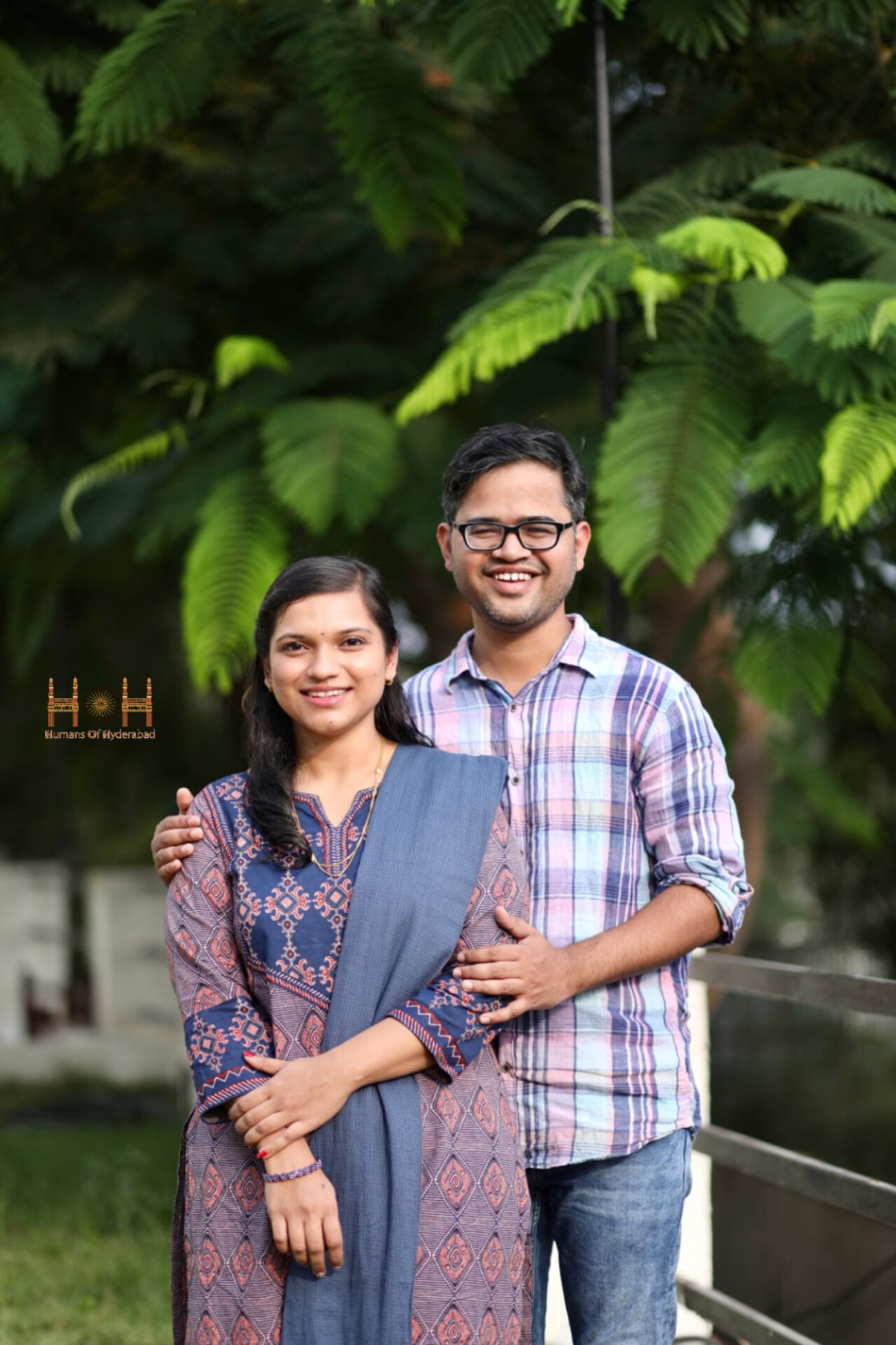“I’m Mrinmayee, and this is our story—mine and Karthik’s. I was born and raised in Pune. In June 2022, I moved to Hyderabad for a writing job at Ramoji Film City. Working on a project envisioned by the legendary Ramoji Rao garu was a huge opportunity, full of challenges and learnings. But outside of work, I was figuring out how to live alone in a new city—house hunting, adjusting to the food, struggling with the language, and meeting new people. Even though many helped me settle in, the feeling of being completely on my own hit hard.
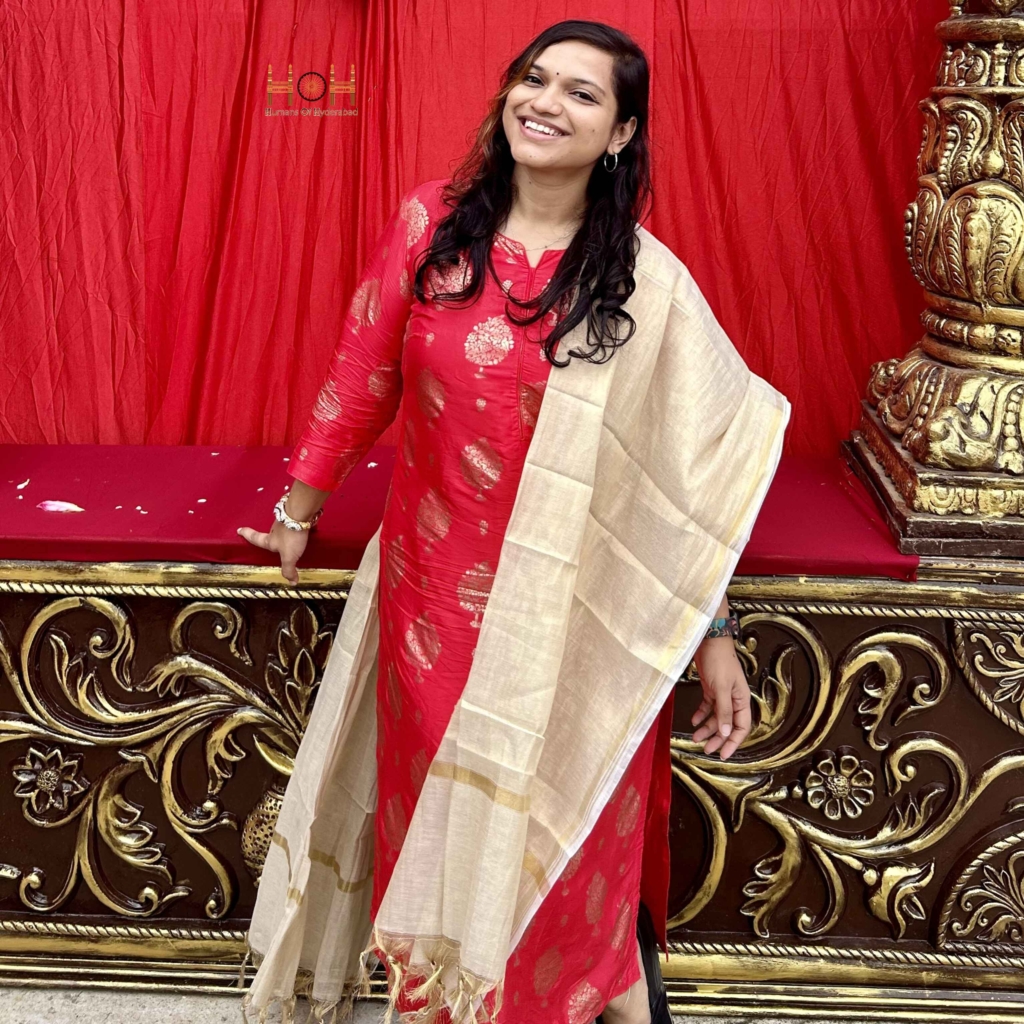
Being an introvert who grew up with a single mother, I’ve always found it difficult to connect with people. So, apart from occasional outings with work friends, I started exploring Hyderabad on my own, making it a weekend ritual to visit a new place.
That’s when Karthik entered the picture. Our highly superior consultant introduced me to him, calling him a young aspirant writer with a great passion for films and books, the two things that meant a lot to me. When we first met, we had enough to talk about and hoped to collaborate on a project. But it never took off, and we lost touch for a couple of months. Later, I found out he had joined our team but on some other job profile. We got in touch again, and my nature of not getting along easily with people struck our friendship as well. I kept on rejecting whenever he asked me to explore a new cafe in the city or watch a film, but I continued going alone to places which he always found strange. After a few hits and misses, I realised I needed to loosen it and go out once with him. That was the first time we openly talked to each other and got to know who we are as persons, where we come from and what we aspire to do in life. My apology was my way of expressing regret for why I kept delaying such moments. Then, there was no stopping. I found extreme comfort in going to watch films, exploring restaurants, attending media events, and seeing Hyderabad through the eyes of someone who settled here way before I did. The feeling of being alone in this city slowly vanished. At work, we motivated each other to do better and apart from work, we encouraged each other to explore things regularly. Then, one Sunday night, after a movie and dinner, he dropped me home. A few hours later, I got a call saying that Karthik met with an accident.
At 2 AM, without a second thought, I booked an auto and rushed to the hospital. Seeing him unconscious, bruised, and lying there was the last thing I had imagined. Till he woke up, I felt restless. There was so much I wanted to tell him that I even wrote everything down, waiting for the moment he recovered. Thankfully, he got better within a week. Just two days after his discharge, he planned a special birthday celebration for me, despite his pain.
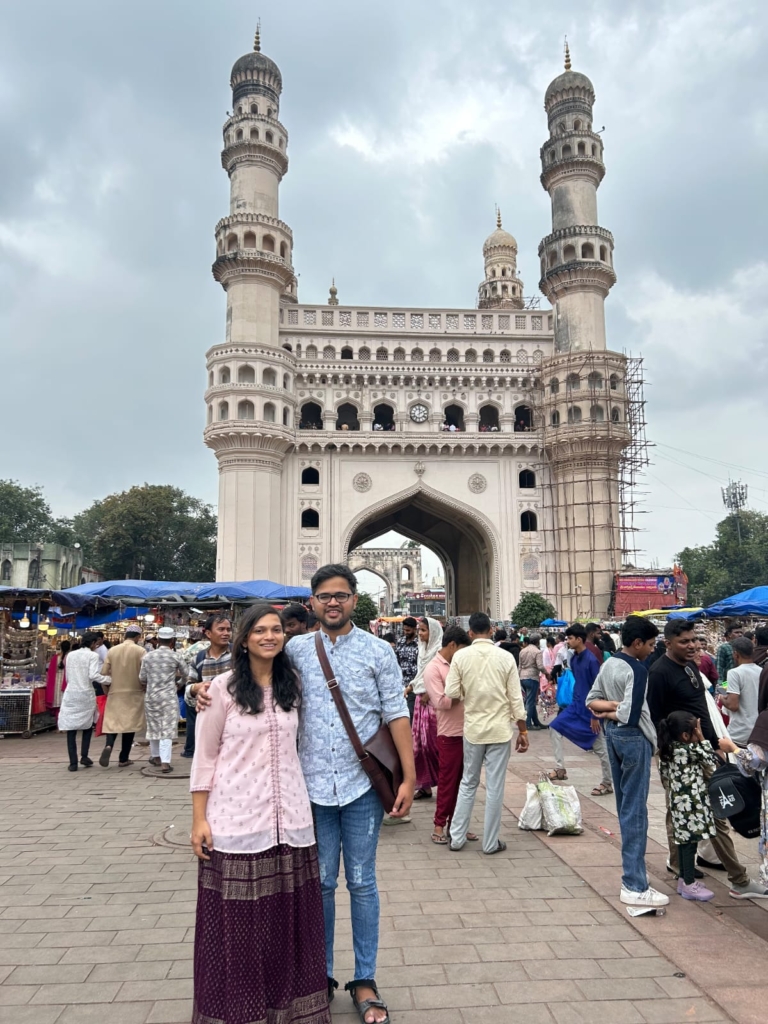
After that, something changed. I started caring for him even more, and he noticed. Over time, I realised how important breaking career stereotypes was for him—he wanted to pursue a career in films instead of taking the conventional path. I, on the other hand, knew that being independent was the only way to survive because I had seen my mother navigate life that way. Without realising it, he started filling the emotional gaps I had always felt growing up without a complete family, and I became his support system, reminding him that he didn’t need to be hard on himself to prove anything.
On New Year’s night, we had planned to celebrate by watching a film. Out of nowhere, he proposed marriage. I was stunned, but he was serious about taking this step—even though we came from different states, cultures, traditions, and languages. Once I was sure about my decision, convincing my mother was easy; she trusted me with all my decisions. But for Karthik, it was different. He had a whole family to convince, and marrying someone from another state wasn’t exactly common in his family.
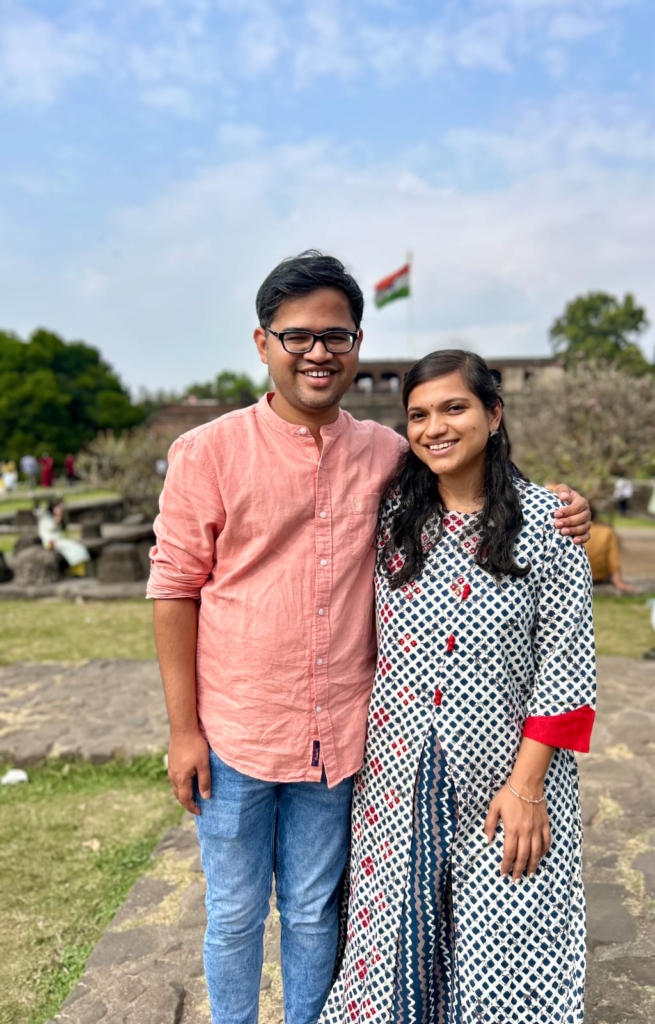
We took a few months and answered every question that came our way. Even after our families met and agreed on most things, some doubts still lingered. One major challenge was ‘Kanyadan’. His family believed it should be performed by a couple, but I was firm—my mother had raised me, and she had every right to perform it. In Maharashtrian culture, there have been examples of this. Karthik assured me we’d find a middle ground. To respect Telugu traditions, my maternal uncle and aunt participated in the ritual, but my mother was the one who performed it.
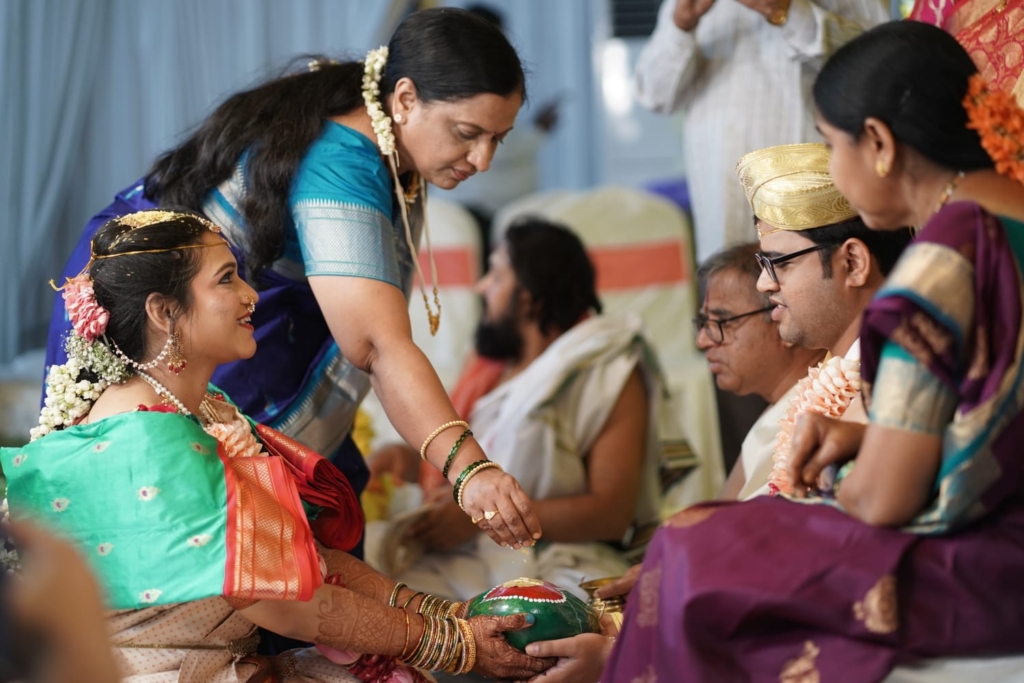
My senior colleague and his wife, who are like family in Hyderabad, along with my maternal cousin and my best friend from Pune, also stood by me, ensuring I was in safe hands.
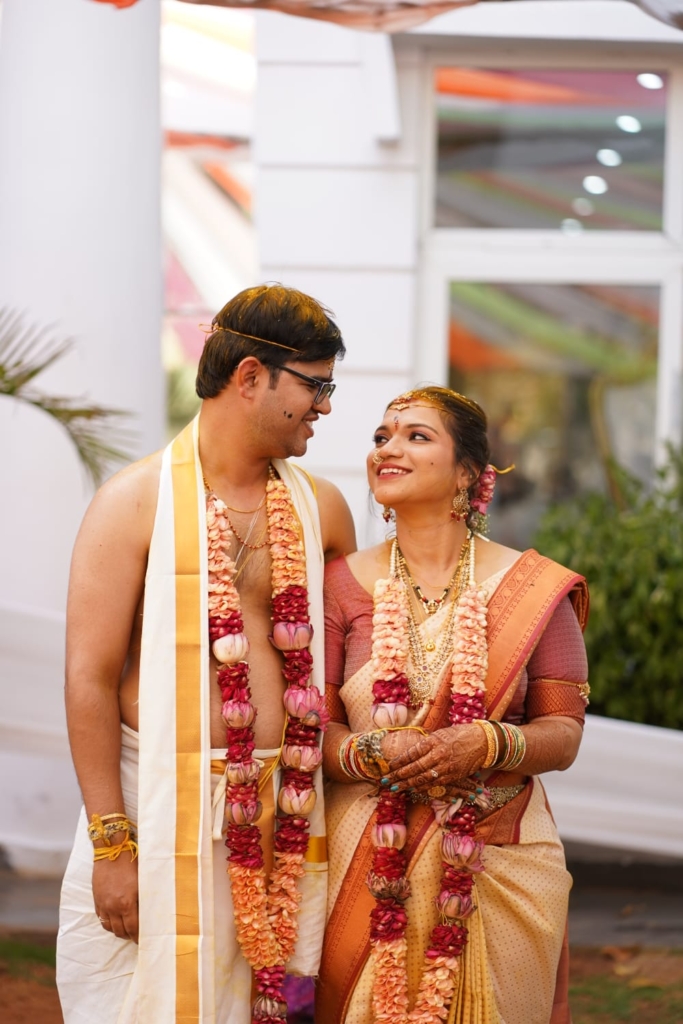
Though our wedding was primarily a Telugu one, Karthik made sure we blended Marathi and Telugu traditions in every possible way. Some people wondered how we would manage different backgrounds, settling in a new city, working in the same office. But we knew that our love wasn’t based on the languages we spoke or the traditions we followed. We chose each other for who we are, for the dreams we share, and for the way we push each other to be better.
Maybe the best things in life are the ones you don’t see coming.”
